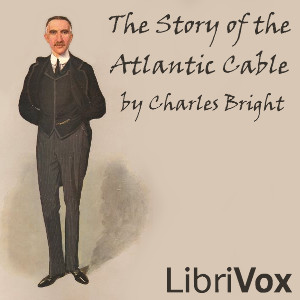
The electric telegraph, together with the railway-train and the steamship, constituted the three most conspicuous features of late 19th century civilization. Indeed, it may be truly said that the harnessing electricity to the service of man for human communication has effected a change in political, commercial, and social relations, even more complete than that wrought by steam locomotion. This is the story of how the electric telegraph cable was laid across the floor of the Atlantic from Newfoundland to Ireland. – Summary by modified from the introduction

Other Audiobook
Audiobook: Three Essays by James Freeman Clarke
Three diverse essays on souls in animals, a comparison of Buddhism and Christianity, and individualism
Audiobook: A Florida Sketch-Book
This is a series of late-19th Century essays about Florida’s flora & fauna written by
Audiobook: Europe and Elsewhere
This collection of articles came from Mark Twain’s travels and experiences abroad. While many had
Audiobook: Story of Books
Rawlings follows the development of printing from the origins of writing to modern printing. Some
Audiobook: Conqueror Worm
Edgar Allan Poe was an American writer, editor, and literary critic. Poe is best known
Audiobook: Alice in Blunderland: an Iridescent Dream
From Alice in Blunderland: “Certain of our members claim that they have a right to
Audiobook: New Republic; or Culture, Faith and Philosophy in an English Country House
A group of upper class men and women gather together in an English country house
Audiobook: Ideal Husband (version 2)
The “Ideal Husband” of the title is Sir Robert Chiltern, with his equally upright wife
Audiobook: Valley of Silent Men
Subtitled: A Story of the Three River Country. James Kent has learned that he is
Audiobook: Winsome Winnie and other New Nonsense Novels
Eight silly stories by Canadian humourist Stephen Leacock.
Audiobook: One Fool Makes Many
“I will discuss this matter in an allegory: … There was once upon a time
Audiobook: Tower of London
A short book, whose chapters were originally published in The Daily Mail, which explores the